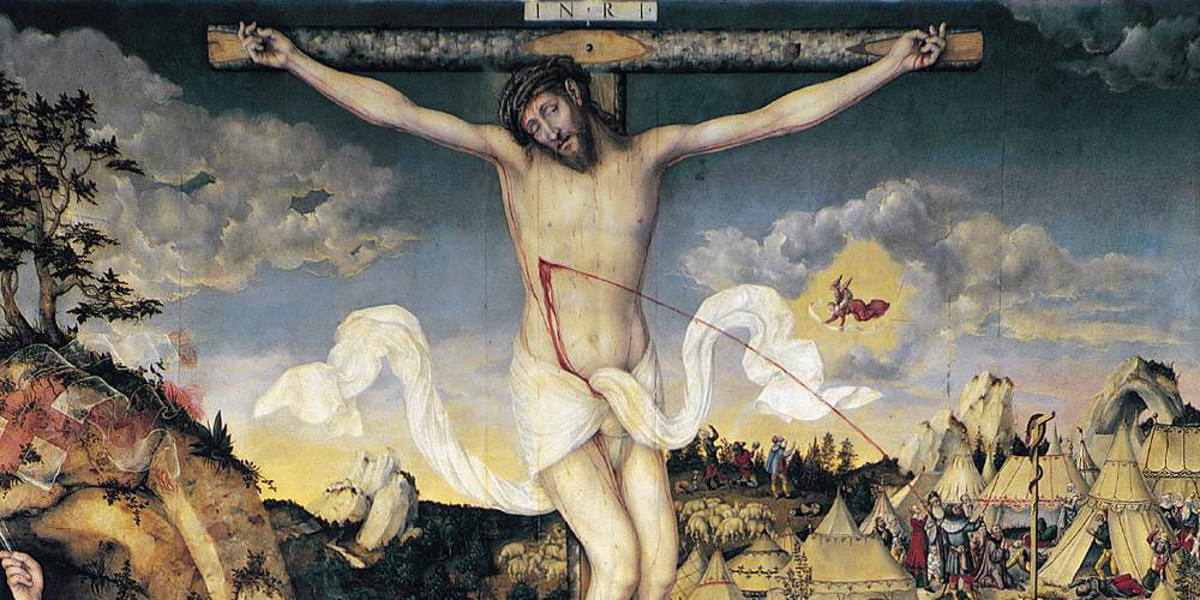The first chapter
of
John’s gospel
elaborates on the
incarnation of Jesus Christ
more than any other passage in the Bible.
John wanted
his readers to know that
Jesus was the
absolute
revelation of God in human form:
And the Word became flesh
and dwelt among us,
and we
beheld His glory,
the glory as of the
only begotten of the Father,
full of
grace and truth
” (John 1:14, NKJV).
“The Word”
is
the Logos,
Jesus Christ Himself.
He became “flesh,” meaning
the divine Son of God became
human,
like us (Romans 8:3; Philippians 2:7; 1 Timothy 3:16; 1 John 4:2; 2 John 7).
God revealed Himself
to the people of the world through
His Son, Jesus.
Christ
showed us God’s glory. “
We have seen his glory, the glory of the Father’s one and only Son,”
states the New Living Translation.
The author of Hebrews further illuminates:
“The
Son radiates God’s
own glory
and expresses
the
very character of God”
(Hebrews 1:3, NLT).
The statement that “we beheld His glory”
links Jesus to the Old Testament
wilderness tabernacle.
At this earthly tent of meeting,
Yahweh’s divine presence and
glory dwelled
and visibly manifested
among the people of Israel.
They saw His glory in the fire, pillar of smoke, and cloud (Exodus 40:34). In the New Testament, God’s glorious presence was made visible in the living Word, who was clothed in flesh and “tabernacled” among us in the person of Jesus Christ. John 1:14 actually uses a form of the Greek word for “tabernacle” to describe Jesus’ taking on human flesh.
Jesus revealed
His glory for the first time
publicly
at the wedding in Cana,
and, as a result, “his disciples believed in him” (John 2:11, NLT). Mathew and Luke recorded the scene of Christ’s transfiguration when Peter, James, and John beheld a glimpse of His unveiled glory (Matthew 17:2; Luke 9:32).
Peter testified
firsthand to the transfiguration:
For we were not making up clever stories
when we told you about
the powerful coming
of our
Lord Jesus Christ.
We saw his majestic splendor with
our own eyes
when he received honor and glory
from God the Father.
The voice from the
majestic glory of God said to him,
‘This is my dearly
loved Son,
who brings me great joy’”
(2 Peter 1:16–17, NLT).
When John said, “We beheld His glory,” he was giving eyewitness testimony to the incarnation—that God Himself had come to earth embodied in the Son: “We proclaim to you the one who existed from the beginning, whom we have heard and seen. We saw him with our own eyes and touched him with our own hands. He is the Word of life” (1 John 1:1, NLT).
Not only John, but all the
disciples had seen Jesus and beheld
His glory with their own eyes.
These apostles could all testify that the
Father had sent Jesus to be the Savior
of the world (1 John 4:14).
Other teachers
were likely
spreading false ideas
about Jesus
and contradicting the
truth
of the incarnation.
But the teachings of John and the other disciples
were trustworthy
because these men had firsthand experience
hearing, seeing, and touching Jesus
(John 19:35).
The miracles of
Jesus
revealed God’s glory
(John 11:4, 40).
The word for “glory” in John 1:14 means
“a state of high honor.”
Those who
witnessed Christ’s miracles--
those
who beheld His glory--
saw and understood
that
God was worthy of
the
highest honor and praise
(John 4:53; 9:38; 20:29).
The suffering and death
of Jesus also
revealed God’s glory
(John 17:1, 5; Romans 8:18).
Everything Jesus did brought
praise and honor to God
so that all who beheld His glory and believed
in Him received His gift of salvation
(John 12:16; 13:31–32; 20:30–31; Philippians 2:9–11; Ephesians 1:12).
Paul taught that Satan blinds the eyes of unbelievers so they cannot behold God’s glory or understand the message of salvation in Jesus Christ. They “are unable to see the glorious light of the Good News. They don’t understand this message about the glory of Christ, who is the exact likeness of God” (2 Corinthians 4:4, NLT). But praise God, who through Jesus Christ our Lord lets His light shine in our hearts so we can “know the glory of God that is seen in the face of Jesus Christ” (2 Corinthians 4:6, NLT).
The answer to this question is found by
first understanding the reason
why John
wrote his gospel.
We find his purpose clearly stated in John 20:30-31. “
Many other signs therefore Jesus also performed in the
presence of the disciples,
which are not
written in this book; but these have
been written that
you may believe that
Jesus is the Christ, the Son of God;
and that believing
you may have
life in His name.”
Once we understand that
John’s purpose
was to introduce the readers of
his
gospel to Jesus Christ,
establishing
Who Jesus is (God in the flesh)
and what He did,
all with the sole aim
of
leading them to embrace
the
saving work of Christ in faith,
we will be better able
to understand why John introduces
Jesus as “The Word”
in John 1:1.
By starting out his gospel stating,
“In the beginning was the Word,
and the Word was with God,
and the Word was God,”
John is introducing Jesus with a word or a term that both his Jewish and Gentile readers would have been familiar with. The Greek word translated “Word” in this passage is Logos, and it was common in both Greek philosophy and Jewish thought of that day. For example, in the Old Testament the “word” of God is often personified as an instrument for the execution of God’s will (Psalm 33:6; 107:20; 119:89; 147:15-18). So, for his Jewish readers, by introducing Jesus as the “Word,” John is in a sense pointing them back to the Old Testament where the Logos or “Word” of God is associated with the personification of God’s revelation. And in Greek philosophy, the term Logos was used to describe the intermediate agency by which God created material things and communicated with them. In the Greek worldview, the Logos was thought of as a bridge between the transcendent God and the material universe. Therefore, for his Greek readers the use of the term Logos would have likely brought forth the idea of a mediating principle between God and the world.
So, essentially, what John is doing by introducing Jesus as the Logos is drawing upon a familiar word and concept that both Jews and Gentiles of his day would have been familiar with and using that as the starting point from which he introduces them to Jesus Christ. But John goes beyond the familiar concept of Logos that his Jewish and Gentile readers would have had and presents Jesus Christ not as a mere mediating principle like the Greeks perceived, but as a personal being, fully divine, yet fully human. Also, Christ was not simply a personification of God’s revelation as the Jews thought, but was indeed God’s perfect revelation of Himself in the flesh, so much so that John would record Jesus’ own words to Philip: "Jesus said unto him, 'Have I been so long with you, and yet you have not come to know Me, Philip? He who has seen Me has seen the Father; how do you say, "Show us the Father"?'" (John 14:9). By using the term Logos or “Word” in John 1:1, John is amplifying and applying a concept with which his audience was familiar and using that to introduce his readers to the true Logos of God in Jesus Christ, the Living Word of God, fully God and yet fully man, who came to reveal God to man and redeem all who believe in Him from their sin.
salm 90, the only psalm attributed to Moses, is titled “A Prayer of Moses, the Man of God.” The prayer opens with these words: “Lord, you have been our dwelling place throughout all generations” (Psalm 90:1). Considering the forty years (or one third of his life) Moses spent wandering in the wilderness with no fixed dwelling place, it’s no wonder he would say, “Lord, through all the generations you have been our home!” (NLT).
The word translated “dwelling place” in the original Hebrew language means “refuge, shelter from danger or hardship, habitation.” Many of the psalms describe God in similar terms: “Because you have made the LORD your dwelling place—the Most High, who is my refuge—no evil shall be allowed to befall you, no plague come near your tent” (Psalm 91:9–10, ESV). “You are my hiding place,” says Psalm 32:7 of the Lord, “You will protect me from trouble and surround me with songs of deliverance.” Psalm 71:3 declares, “Be to me a rock of habitation to which I may continually come” (NASB95).
The concept of God as our dwelling place expresses the stability, dependability, and eternal constancy of God. Perhaps better than most, Moses understood and could accurately communicate the permanence of God in the believer’s life. Moses continued the portrayal in Psalm 90:2, “Before the mountains were born or you brought forth the whole world, from everlasting to everlasting you are God.” God is our fixed address for all of time and eternity. Moses uttered this assurance again to the people of Israel as they were about to enter the Promised Land: “The eternal God is your dwelling place, and underneath are the everlasting arms” (Deuteronomy 33:27, ESV). Moses wanted the people to comprehend that God Himself had always been and would always be their permanent, immovable, unshakeable, eternal home. The Lord was their place of shelter and refuge, and His everlasting, all-powerful arms would forever be under them to uphold and carry them through life.
Describing God as our dwelling place is also a picture of the unbroken, intimate fellowship God desires to have with His people. He longs to bring us home, near to Himself, so we can dwell in His courts and “be satisfied with the goodness” of His house and the holiness of His temple (Psalm 65:4, ESV).
He wants our desire to match His own so that we
might pray like David,
“One thing I ask from the LORD, this only do I seek:
that I may dwell in the house of the LORD
all the days of my life,
to gaze on the beauty of the LORD”
(Psalm 27:4).
David loved being in
God’s presence
(Psalm 26:8).
He often prayed,
“I long to dwell in your tent forever and
take refuge
in the shelter of your wings”
(Psalm 61:4)
. Like the Lord’s “
dwelling place,” “refuge,” or “house,”
His “tent”
is a symbol of His presence and protection.
Only God’s children can say to Him, “
Surely your goodness and love will follow me
all the days of my life,
and I will dwell in the house of the LORD forever
” (Psalm 23:6).
Today we experience the
richness of God’s presence
through a relationship with
Jesus Christ
(John 6:51–58; 15:1–17).
Jesus came to
dwell
among us so that we might live with God forever
(John 1:14).
Before we accepted Christ as Savior,
we were
living far apart from God
(Ephesians 2:12).
But once we were
united with Christ,
we were “
brought near by His blood
” (Ephesians 2:13).
Through His death on the cross,
Jesus Christ provided “
access by one Spirit to the Father”
(Ephesians 2:18).
Now and forever,
true believers can experience God
as our dwelling place,
enjoying the fullness of
joy in His presence
(Psalm 16:11).
In the “panorama of time and eternity,”
God is our dwelling place from the ancient days of Moses to
the new heavens and earth when, “
behold, the dwelling place of God is with man.
He will dwell with them, and they
will be his people,
and God himself will be with them as their God”
(Revelation 21:3, ESV).



 RSS Feed
RSS Feed
























































